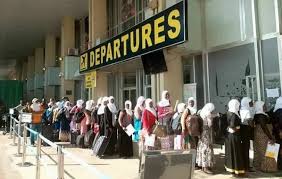In a historic and controversial move, French President Emmanuel Macron has announced that France will officially recognise a Palestinian state at the United Nations General Assembly in September 2025. The decision has sparked strong reactions around the world, particularly from Israel and the United States, and comes at a time when tensions in the Middle East are already dangerously high.
President Macron declared his decision through a post on social media, stating that France is committed to a “just and lasting peace in the Middle East.” He emphasized that recognizing a Palestinian state aligns with France’s long-standing support for a two-state solution—where Israel and Palestine would exist side by side in peace.
France’s move would make it the most influential Western nation and the first G7 country to formally recognize Palestine. This follows similar steps taken earlier in the year by other European countries such as Norway, Ireland, and Spain.
However, the announcement was immediately condemned by both the United States and Israel. US Secretary of State Marco Rubio called the move “reckless,” claiming it promotes “Hamas propaganda” and harms peace efforts. He also confirmed that the US would not attend an upcoming United Nations conference on the two-state solution, which will be co-hosted by France and Saudi Arabia from July 28 to 30.
President Donald Trump’s administration, since returning to power in January 2025, has shown increasing skepticism about the viability of a two-state solution. Trump has floated extreme alternatives, including a controversial plan to “take over” Gaza and turn it into a tourist destination—a proposal widely condemned by human rights groups and the international community as a form of ethnic cleansing.
Israel reacted strongly as well. Prime Minister Benjamin Netanyahu accused France of “rewarding terror” and claimed that a Palestinian state would become a base for attacks against Israel. He argued that Palestinians aim not for peaceful coexistence but to replace Israel entirely. Israel’s Defence Minister, Israel Katz, called the French decision “a disgrace” and a “surrender to terrorism.”
Meanwhile, the humanitarian situation in Gaza continues to worsen. Since the October 7, 2023 Hamas-led attack on southern Israel, which killed more than 1,100 people and led to over 200 hostages being taken, Israel has launched a relentless military campaign on Gaza. Nearly 60,000 Palestinians have been killed and over 144,000 injured during the ongoing 21-month assault, with widespread destruction and a growing humanitarian crisis.
International criticism of Israel’s actions has been increasing. On Monday, 28 countries—including the UK, Japan, and several European nations—issued a joint statement calling for an immediate end to the war. The statement also condemned the limited flow of aid and the deaths of civilians, including children, who are struggling to access basic necessities like food and water.
Despite repeated efforts by the US, Egypt, and Qatar to broker a ceasefire, negotiations have failed to bring about lasting peace. The upcoming UN conference, though now lacking US participation, aims to develop a roadmap to end the decades-long conflict and officially recognize a Palestinian state.
As global divisions deepen over how to resolve the Israel-Palestine conflict, Macron’s bold move has reignited a long-standing debate—should recognition of Palestine come before peace is achieved, or must peace be reached first?
For now, the world watches as the September deadline approaches, hoping for progress but fearing further escalation.



